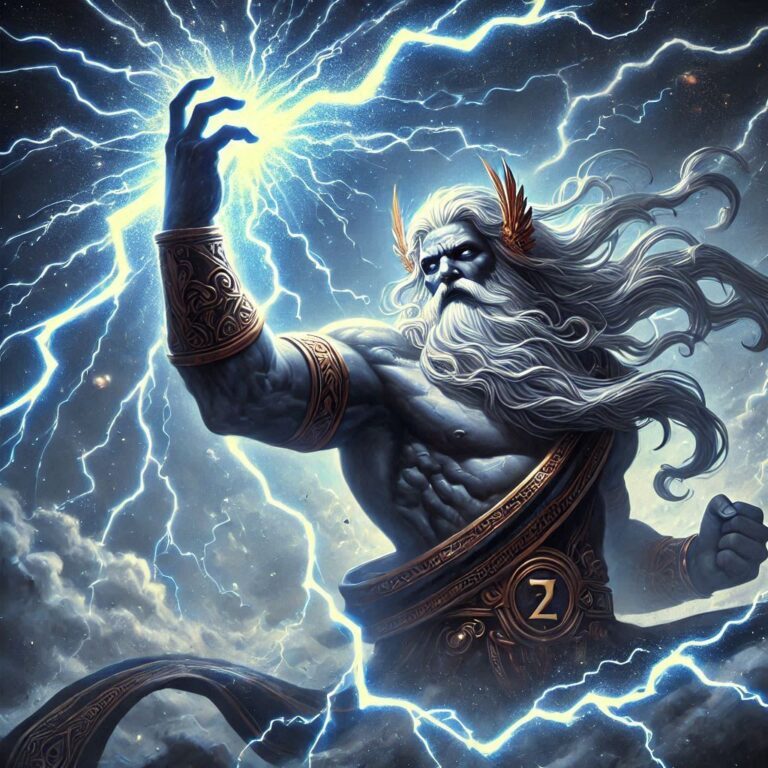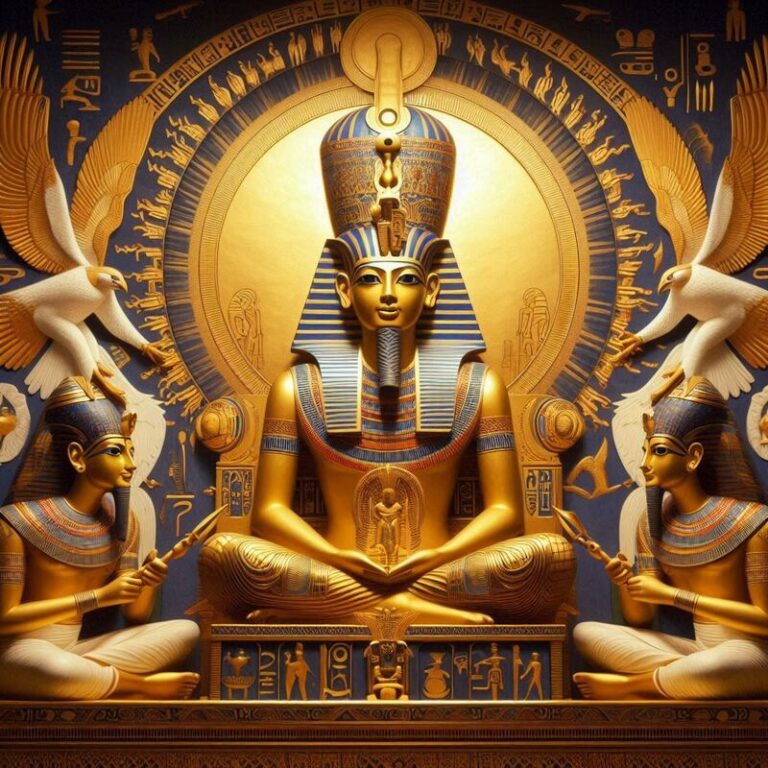Exploring the Majestic Pantheon
Exploring the Majestic Pantheon
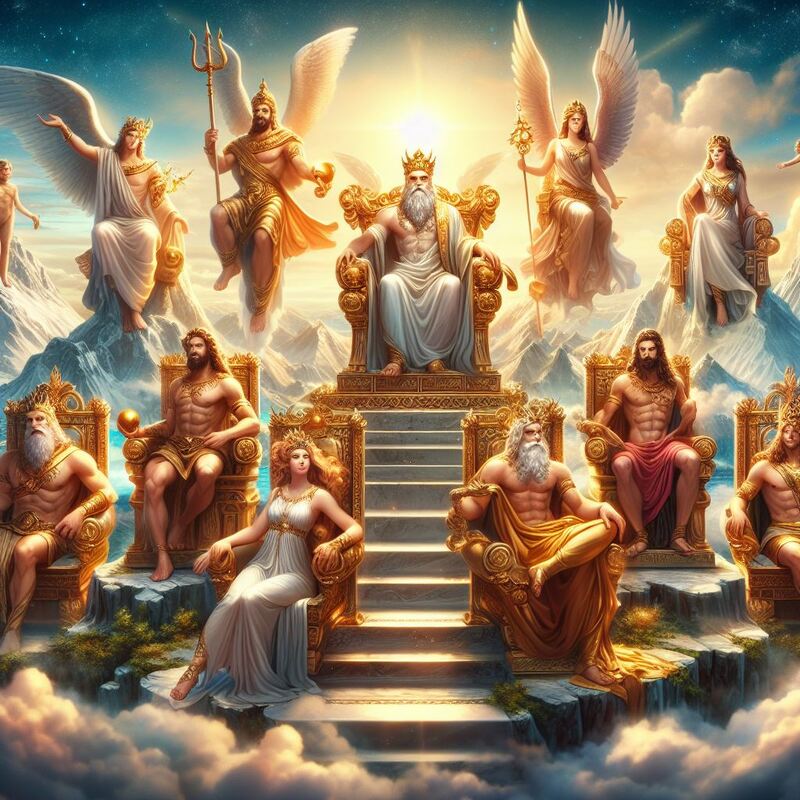
Exploring the Majestic Pantheon: An In-Depth Journey through the Olympian Gods
In the tapestry of ancient Greek mythology, the Olympian gods reign supreme, presiding over Mount Olympus with a combination of awe-inspiring power and captivating personalities. These divine beings, with their complex interrelations and multifaceted roles, have fascinated storytellers and scholars for centuries. Join us on an enthralling journey as we delve into the rich tapestry of the Olympian pantheon, exploring the intricate dynamics and unique characteristics of each deity.
Zeus: The King of the Gods At the pinnacle of the Olympian hierarchy sits Zeus, the thunderbolt-wielding ruler of the skies. As the god of thunder, lightning, and the heavens, Zeus embodies supreme authority and power. His iconic imagery often depicts him seated on a throne, wielding his thunderbolt with commanding presence. Beyond his dominion over the elements, Zeus is also known as the protector of justice and order, serving as the arbiter of divine law and moral conduct.
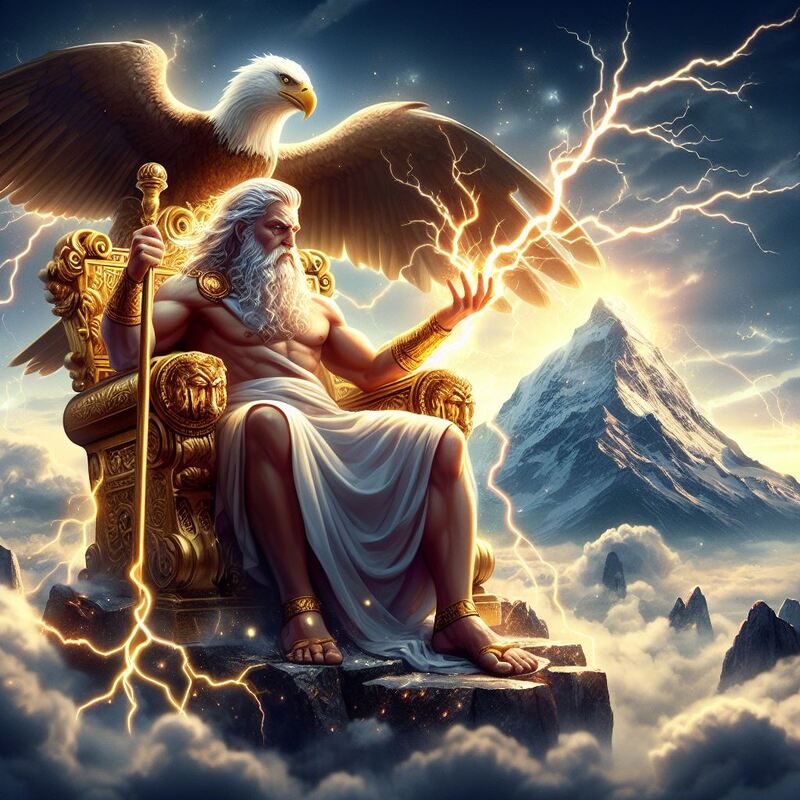
Hera: The Queen of Olympus As the sister and wife of Zeus, Hera assumes the role of the queen of the gods and the goddess of marriage and family. Often depicted with a regal bearing and a diadem adorning her brow, Hera commands respect and reverence among both mortals and immortals alike. Despite her status as the goddess of marriage, Hera’s relationship with Zeus is fraught with conflict and jealousy, a recurring theme in Greek mythology.
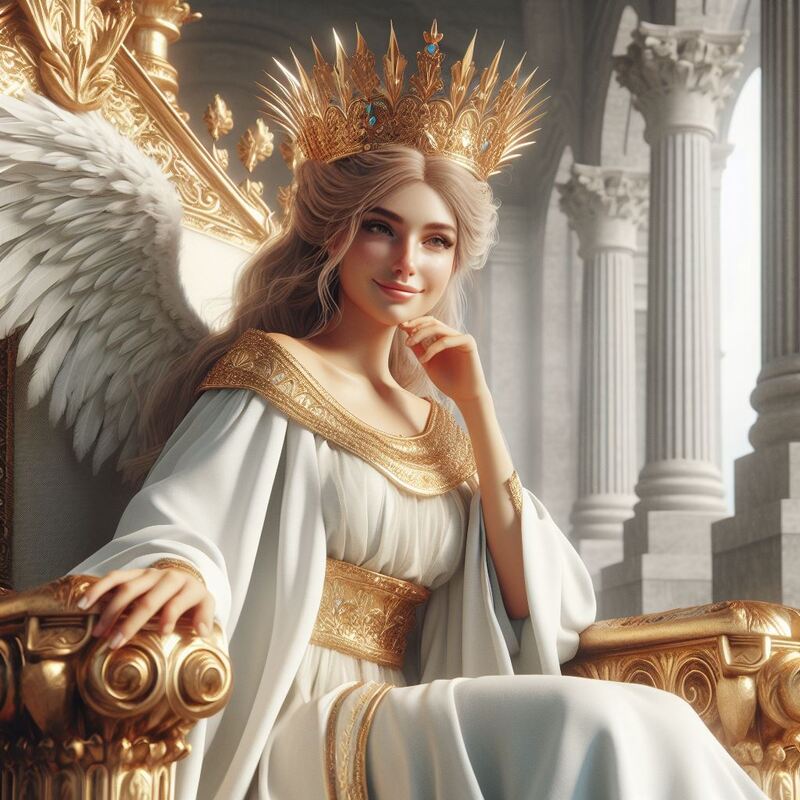
Exploring the Majestic Pantheon
Poseidon: The God of the Seas In the vast expanse of the oceans, Poseidon holds sway as the mighty god of the seas, earthquakes, and horses. With his trident in hand and a crown of seaweed adorning his brow, Poseidon commands the tempestuous waters with unrivaled authority. Beyond his domain over the seas, Poseidon is also associated with earthquakes, wielding his power to shape the very foundations of the earth.
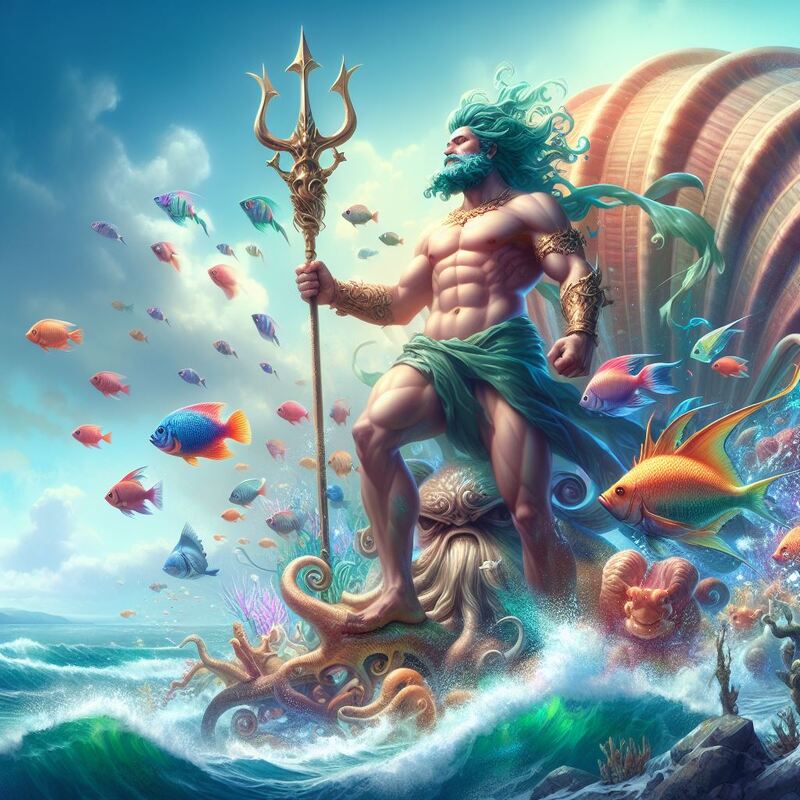
Demeter: The Goddess of Agriculture In the fertile fields and bountiful harvests of the earth, Demeter reigns as the goddess of agriculture, fertility, and the harvest. With a crown of golden wheat and a nurturing demeanor, Demeter embodies the cyclical rhythms of nature and the bounty of the earth. Her sorrow over the abduction of her daughter Persephone by Hades serves as a central motif in Greek mythology, reflecting the seasonal cycle of growth, death, and rebirth.

Exploring the Majestic Pantheon
Athena: The Goddess of Wisdom and Warfare In the realm of wisdom and strategic warfare, Athena stands as a formidable figure, embodying intellect, courage, and strategic prowess. Born fully armored from the head of Zeus, Athena is often depicted with a shield and spear in hand, ready to defend her allies and vanquish her foes. Beyond her martial prowess, Athena is also revered as the patroness of arts, crafts, and civilization, guiding humanity in the pursuit of knowledge and innovation.
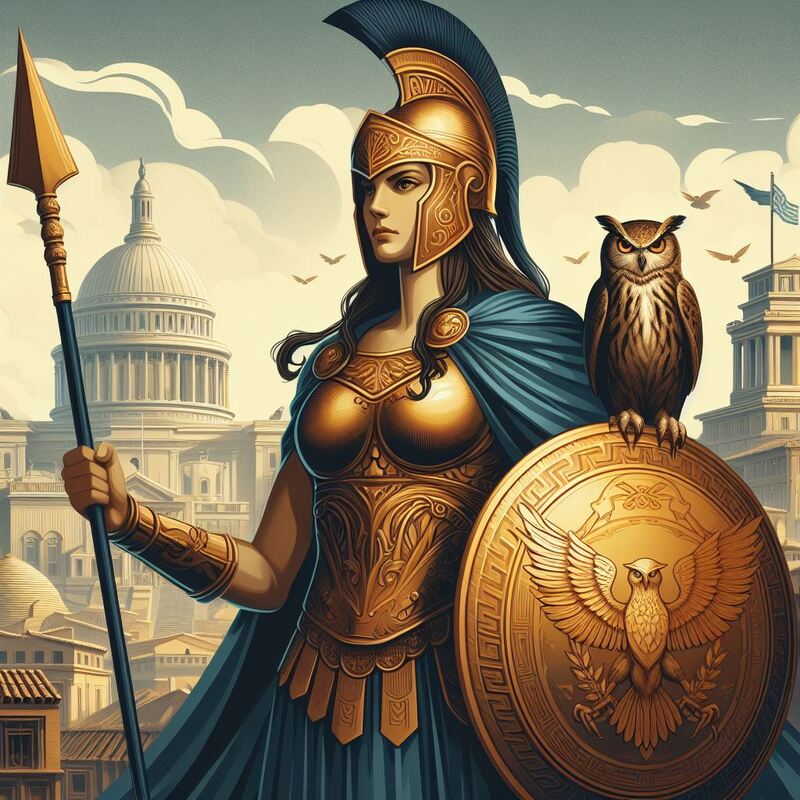
Apollo: The God of Light and Music In the radiant glow of the sun and the harmonious melodies of music, Apollo reigns as the god of light, prophecy, and the arts. With his lyre in hand and a laurel wreath adorning his brow, Apollo exudes grace, beauty, and artistic inspiration. As the patron of music, poetry, and the fine arts, Apollo embodies the creative spirit of humanity, inspiring poets, musicians, and artists throughout the ages.
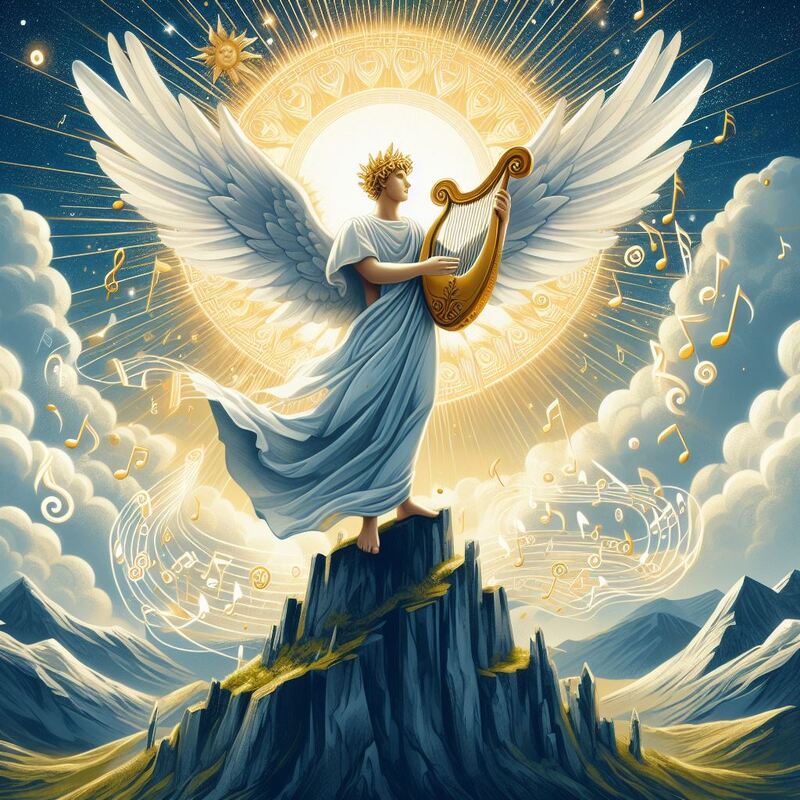
Exploring the Majestic Pantheon
Artemis: The Goddess of the Hunt and Wilderness Amidst the untamed wilderness and rugged landscapes, Artemis roams as the goddess of the hunt, wilderness, and childbirth. With her bow and arrows at the ready and a crescent moon adorning her brow, Artemis embodies the fierce independence and primal instincts of the natural world. Beyond her role as the huntress, Artemis is also revered as the protector of young maidens and the guardian of childbirth, offering solace and protection to those in need.
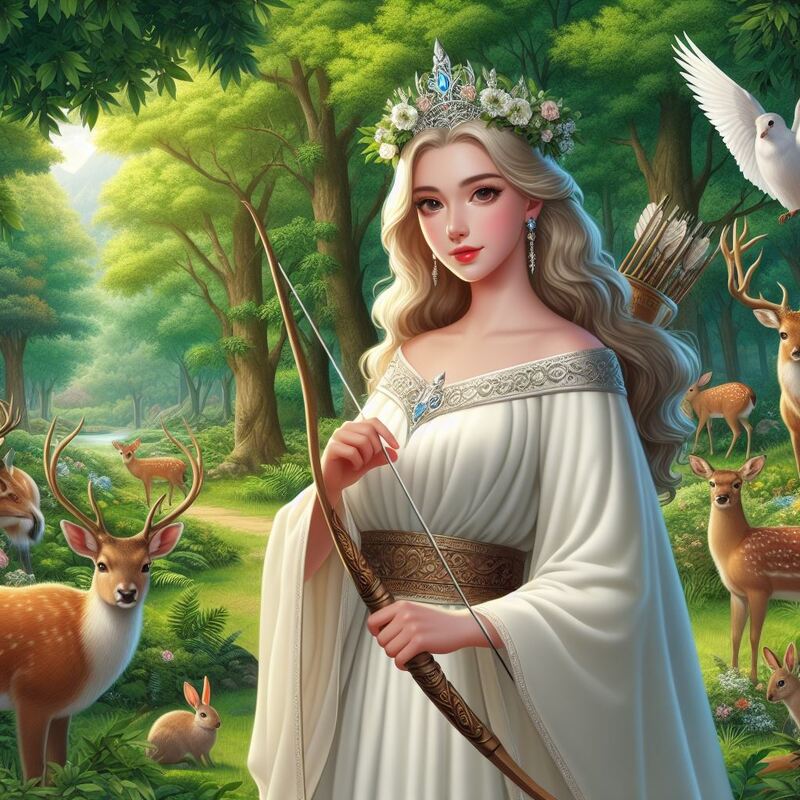
Ares: The God of War In the heat of battle and the clash of swords, Ares strides as the god of war, embodying the brutal and chaotic nature of conflict. With his bloodstained spear in hand and a helm of terror adorning his brow, Ares revels in the chaos and carnage of warfare. Despite his ferocious reputation, Ares is also associated with courage, valor, and martial prowess, inspiring warriors to fight with unwavering resolve.
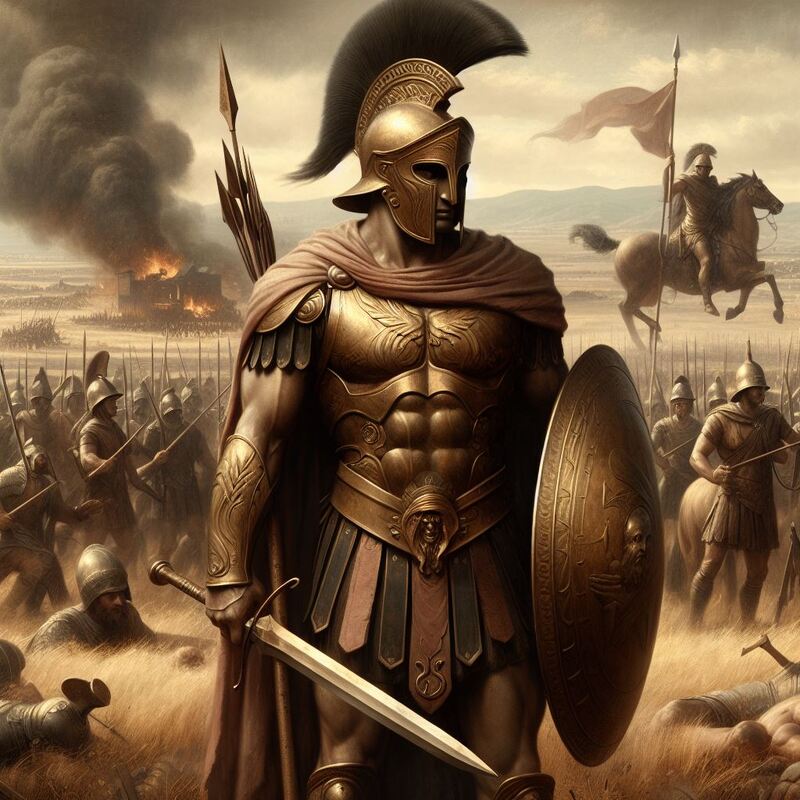
Aphrodite: The Goddess of Love and Beauty In the tender embrace of love and the allure of beauty, Aphrodite reigns as the goddess of love, beauty, and desire. With her enchanting presence and beguiling charm, Aphrodite captivates mortals and immortals alike, inspiring passion and devotion in equal measure. Beyond her role as the goddess of love, Aphrodite is also associated with fertility, pleasure, and procreation, celebrating the joys of romance and companionship.

Exploring the Majestic Pantheon
Hephaestus: The God of Fire and Forge Amidst the roaring flames of the forge and the clang of hammer on anvil, Hephaestus toils as the god of fire, craftsmanship, and technology. With his mighty hammer in hand and soot-stained apron adorning his frame, Hephaestus embodies the ingenuity and skill of the artisan. Despite his physical deformity, Hephaestus is revered for his craftsmanship and inventiveness, crafting wondrous creations that astound both mortals and immortals alike.
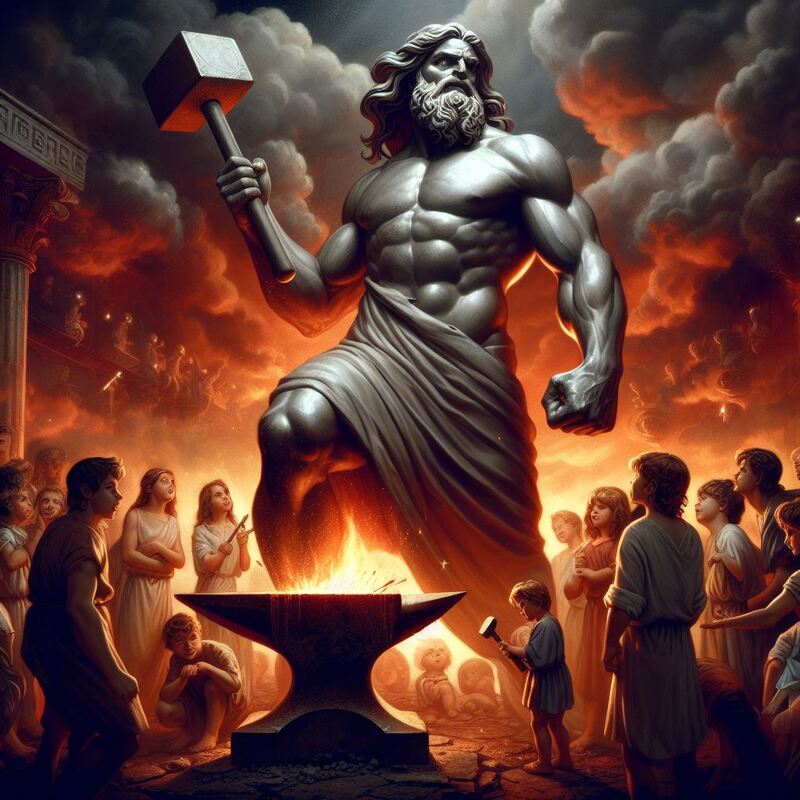
Hermes: The Messenger of the Gods In the swift currents of the air and the cunning wit of the mind, Hermes soars as the messenger of the gods, embodying agility, wit, and eloquence. With his winged sandals and herald’s staff in hand, Hermes traverses the heavens and the earth with unmatched speed and grace. Beyond his role as the messenger, Hermes is also associated with commerce, travel, and diplomacy, guiding mortals in their journeys and facilitating communication among the divine.
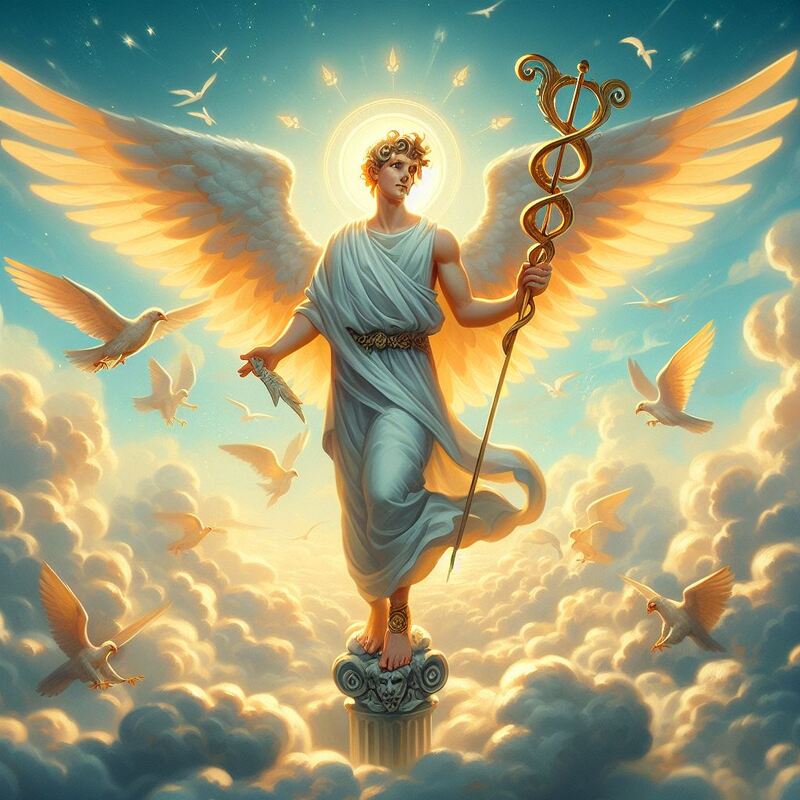
Exploring the Majestic Pantheon
Hestia: The Goddess of the Hearth In the warmth of the hearth and the flickering flames of the fire, Hestia presides as the goddess of the hearth, home, and family. With her serene presence and nurturing demeanor, Hestia embodies the comfort and stability of domestic life. Despite her relatively modest role compared to her fellow Olympians, Hestia is revered for her role in maintaining the sacred flame of the hearth, symbolizing the unity and harmony of the family.
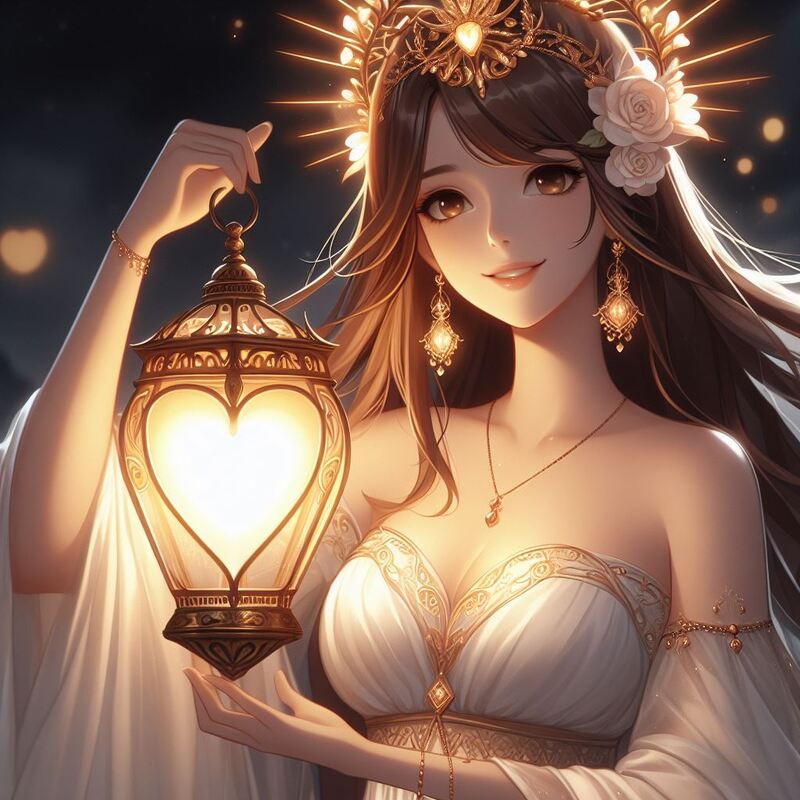
In the grand tapestry of Greek mythology, the Olympian gods stand as towering figures, shaping the world with their divine power and influence. From the thunderous majesty of Zeus to the serene wisdom of Athena, each deity brings their own unique gifts and attributes to the pantheon, weaving a rich tapestry of myth and legend that continues to captivate and inspire us to this day. As we delve deeper into the intricacies of their stories and relationships, we gain a deeper appreciation for the timeless wisdom and enduring relevance of these ancient gods and goddesses, whose legacies continue to echo through the corridors of history and the depths of human imagination.
